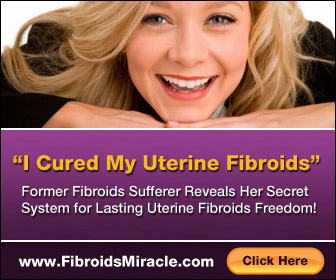Linking Uterine Fibroids Tumors to Diet and Nutrition
The statement “You are what you eat.” should not be a matter of debate when it comes to your health. Diet and nutrition have been proven time and again to have something to do with your state of health. When you are deficient in vitamins and minerals, for instance, you could be more susceptible to uterine fibroids tumor growth. While this is so, vitamin A, B, C, D, E, and B12 deficiency cannot be directly responsible for tumors in the uterus walls. Low levels of these vitamins, however, could increase your chances of getting fibroids.
The exact reasons for the growth of fibroids in the uterus have not been proven yet, but medical studies indicate a strong link with genetics and the surge of female hormones. A diet high in red meat as well as being hypertensive are some of the other suspected factors that aggravate fibroids. Given these factors, patients who are predisposed to or have been diagnosed with fibroids are advised to maintain hormonal balance, reduce stress, and improve heart health. Likewise, a diet that’s rich in vitamins and minerals will benefit uterine health and overall wellness.
Managing Fibroids Through Nutrition
Most fibroids do not require medical or surgical treatment. There is also no guaranteed way to prevent fibroids from growing in the uterus. For women who wish to boost their protection against these tumors, living and eating healthy is the best way to reduce their chances of having fibroids or to stop their existing tumors from growing and spreading.
Consciously watching your diet is not only good for weight management. You can take care of your heart and uterine health too by minding what you eat.
Here’s a short list of food to ensure that you are not deficient in vitamins and minerals:
- High-carotene fruits and vegetables — these will supply you with your Vitamin A requirement. Eat dishes with sweet potatoes, pumpkins, and carrots.
- Dark Leafy greens — spinach and kale are particularly rich in B vitamins that you need to increase energy levels, improve brain function, and optimize cell metabolism.
- Berries — strawberries, raspberries, and blueberries are among the best sources of Vitamin C. They are also rich in antioxidants and other nutrients that fight disease. These fruits also have anti-inflammatory components that are known to help shrink fibroid tumors.
- Salmon, Tuna, Sardines, and Cod Liver Oil — these will satisfy your RDA for Vitamin D. They are also rich in omega-3 fatty acids that are beneficial for those who experience menstrual pain and cramping. According to studies, getting enough of this vitamin also reduces fibroids risk by about 30%.
- Nuts and Grains — these are great sources of protein especially since you have to cut down on your red meat intake for your uterine fibroids. They also contain Vitamin E and minerals like phosphorus, potassium and zinc. Snack on almonds and hazelnuts. Add wheat germ to your smoothies and cereals for a power-packed breakfast.
- Organic Meat and Dairy — you still need to get ample supply of protein even if you are advised to stay away from red meat when you have fibroids. Go for organic lean meat and fat free dairy that are low in cholesterol and are free of synthetic hormones. You’ll get your Vitamin B12 from these foods too – a beneficial vitamin for warding off anemia and maintaining proper nerve function.
Boosting Your Vitamin Intake
Fibroids can be cause and influenced by a number of factors. Vitamin A, B, C, D, E, and B12 deficiency may make you susceptible to the development of these tumors. Make sure that you are getting your RDA of these essential vitamins. It is also a good idea to take multivitamins regularly to boost your protection against uterine fibroids.


